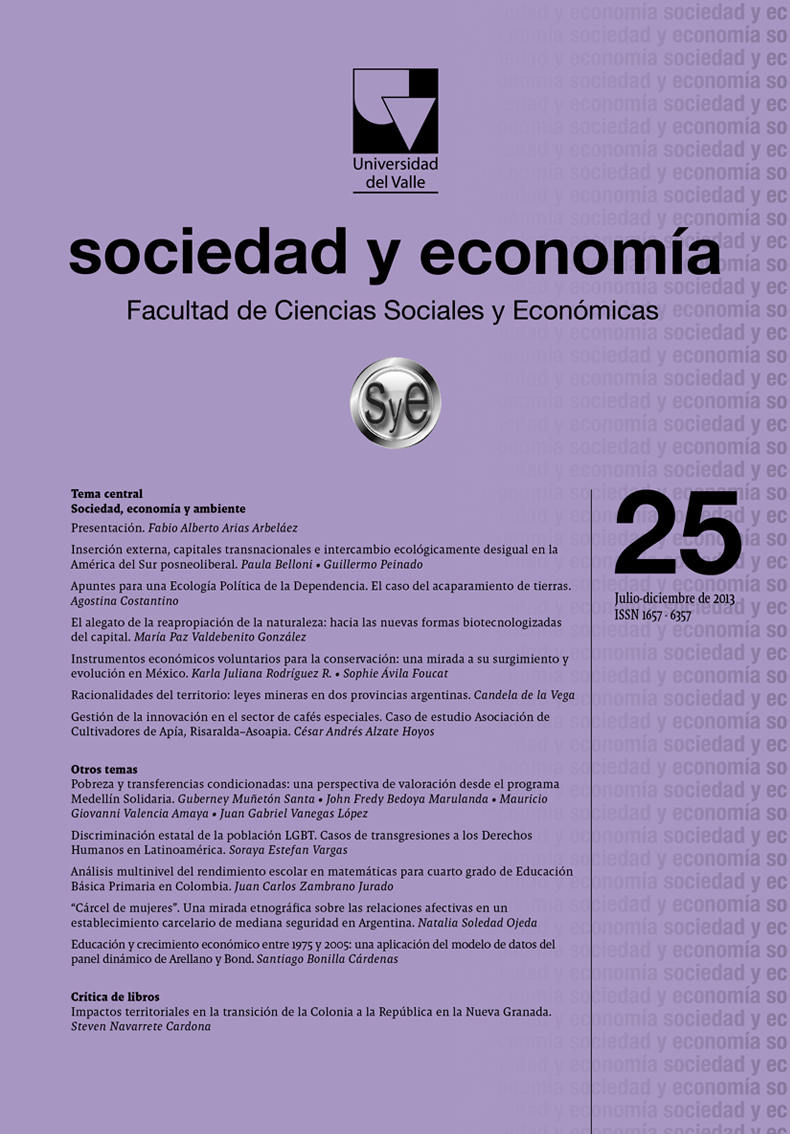Non-Mandatory Economic Instruments for Conservation: An Outlook on their Emergence and Evolution in Mexico
Published:
2013-07-15
Keywords:
Non-Mandatory or Voluntary Economic Instruments, Conservation, Forest Management Certification and Payments for Environmental ServicesMain Article Content
Environmental policy in Mexico has been based on non-mandatory economic instrumentssuch as Forest Management Certification (FC) and Payment for Environmental Services (PES)as a strategy to advance in natural resources conservation. The analysis of the evolution ofthese public policy instruments allows understanding the context in which they were designedand implemented, which is useful to redesign or evaluate them. Thus, this articlepresents an analysis of the emergence, evolution and current trends after two decades of FCand one decade of PES creation. The semi-structured interviews show that although internationalpolicies have been one of the most important causes for the emergence of these instruments,their evolution and tendencies have been relatively well consolidated through nationalpublic policy. The main challenges ahead are to strengthen trade policies (in the caseof FC) and to overcome the discussion between efficiency and equity (in the case of PES).
1.
Rodriguez KJ, Ávila Foucat S. Non-Mandatory Economic Instruments for Conservation: An Outlook on their Emergence and Evolution in Mexico. soc.eco [Internet]. 2013 Jul. 15 [cited 2026 Mar. 5];(25):75-105. Available from: https://sociedadyeconomia.univalle.edu.co/index.php/sociedad_y_economia/article/view/3965
Downloads
Download data is not yet available.

This work is licensed under a Creative Commons Attribution-NonCommercial 4.0 International License.
Revista sociedad y economía editada por la Facultad de Ciencias Sociales y Económicas de la Universidad del Valle se encuentra bajo una Licencia Internacional Creative Commons Atribución - No comercial 4.0
Basada en una obra en http://sociedadyeconomia.univalle.edu.co

